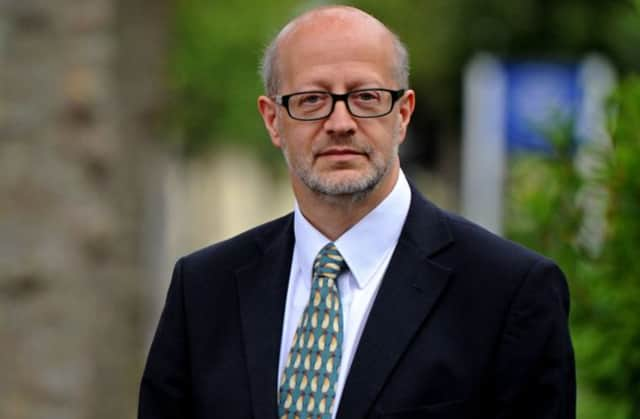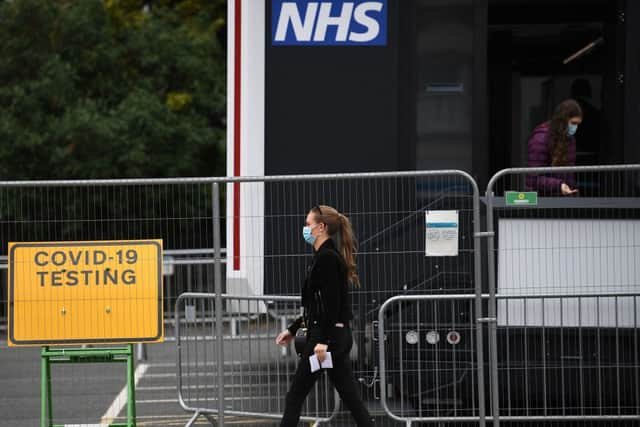Liverpool medical expert says it’s too early to scrap COVID restrictions - questions PM’s motive
and live on Freeview channel 276
A Liverpool medical expert has criticised the Prime Minister’s move to scrap all remaining legal coronavirus restrictions from this week, including self-isolation and free testing.
Boris Johnson’s ‘living with Covid’ strategy will see England move ‘from government restrictions to personal responsibility,’ according to the PM.
Advertisement
Hide AdAdvertisement
Hide AdBut Liverpool Medical Committee secretary Dr Rob Barnett insists the move, originally pencilled in for the end of March, comes too early.
“It was certainly not the right time to do it,” Dr Barnett told BBC Radio Merseyside.
“I accept the fact that we have to live with COVID. It’s with us, it’s going to be with us for a long time, but in our area we still have rates of COVID which are too high.”


The latest figures, up to February 21, show there have been 14 coronavirus deaths in the past week in Liverpool, which is an increase on seven the previous week.
Advertisement
Hide AdAdvertisement
Hide AdChanges to the COVID rules
As of Thursday, it will no longer be a legal requirement to self-isolate after testing positive for Covid.
The government will also no longer ask vaccinated contacts, and those under 18, to test for seven days, and will remove the legal requirement for contacts who are not vaccinated to self-isolate.
There will be an end to contact tracing and from 1 April free COVID tests will not be available for the general public.
The prime minister said that the cost of free tests, currently £2 billion per month, cannot continue.
Advertisement
Hide AdAdvertisement
Hide AdSelf-isolation support payments of up to £500 will stop from Thursday, though COVID provisions for statutory sick pay can still be claimed for a further month.
Reaction to the measures
While some may view the lifting of restrictions as a welcome change and an indication the worst of the pandemic appears to be over, Dr Barnett warns against ‘throwing caution to the wind’.
He said: “The rates yesterday still showed that we [Liverpool] had something like 330 cases per 100,000.
“We had over 1,650 new cases in the last week, we’ve still got something in the region of 200 patients in local hospitals.
Advertisement
Hide AdAdvertisement
Hide Ad“We’ve got an infection rate that - yes it’s coming down - but it hasn’t come down far enough yet for us to throw all caution to the wind.”
A total of 155,671 cases had been confirmed in Liverpool as of Monday, up from 155,160 on Friday.
The cumulativerate of infection in Liverpool, which covers the whole pandemic, stands at 31,105 cases per 100,000 people, far higher than the England average of 28,096.
Easing of restrictions brought forward
When asked how long he thought the lifting of restrictions should be delayed for, Dr Barnett said: “First of all, we were expecting things to carry on until the end of March, and that’s when the current coronavirus regulation would lapse.
Advertisement
Hide AdAdvertisement
Hide Ad“So I cannot understand why the prime minister decided to bring this date forward four weeks.
“Leaving it another four weeks probably would have brought the rates down lower, and then we would’ve been in a much better position.”
The cost of COVID testing
Dr Barnett also expressed concern about losing track of the virus once free testing has ended and the general public is left to pay for their own.
“How many people are going to be prepared to pay, say if its £5 for a test, will they? I doubt it,” he said.
Advertisement
Hide AdAdvertisement
Hide Ad“And of course we’ve got a lot of the population who couldn’t even afford to do that, if it was a choice between getting a test and putting food on the table for their kids I suspect that they’d go and get the food.”


“How on earth are people going to know whether they’ve got the virus? And certainly, if they’re going to be with people who are potentially vulnerable, how are they going to know that they are going to be keeping them safe. It just doesn’t make sense at this moment in time.
“We’re seeing people already behaving as if coronavirus doesn’t exist, and again that just doesn’t make sense in a city where the vaccination rates are just not high enough to give overall protection.
“The government talks about 90% of the population being vaccinated but I can tell you that in Liverpool that might be the case for over 65-year-olds, but as we come down the age groups, its less that 50% in some age groups who have had two vaccinations.
Advertisement
Hide AdAdvertisement
Hide Ad“So we do not have the universal cover of protection that we need to say that it’s safe to carry on life as normal.”
According to the office of national statistics, two-thirds of people in Liverpool have received two doses of a COVID-19 vaccine.
The latest figures show 317,378 people had received both jabs by February 20 – 66% of those aged 12 and over.
Across England, 85% of people aged 12 and above had received a second dose of the jab.
Advertisement
Hide AdAdvertisement
Hide AdDr Barnett concluded: “I am well aware of the fact that there is something like 110 conservative MPs who would’ve voted against the continuation of the restrictions, so I would have to ask the question of whether the prime minister is responding to them or responding to the virus.”
Comment Guidelines
National World encourages reader discussion on our stories. User feedback, insights and back-and-forth exchanges add a rich layer of context to reporting. Please review our Community Guidelines before commenting.